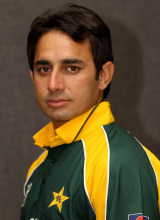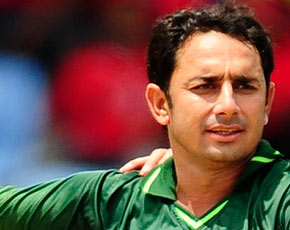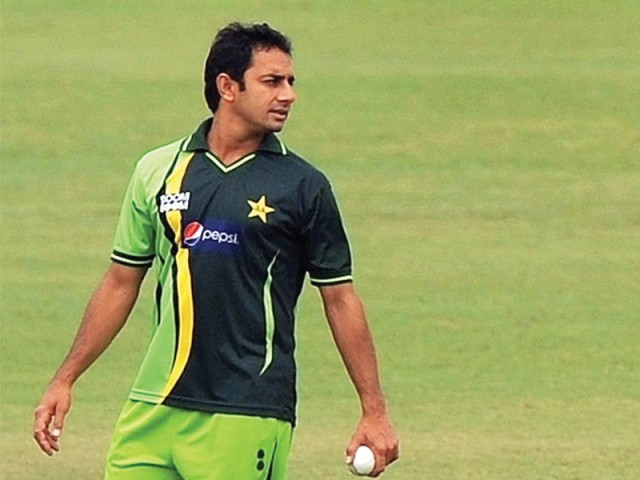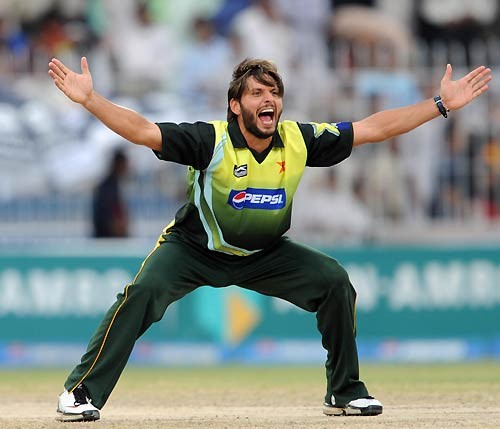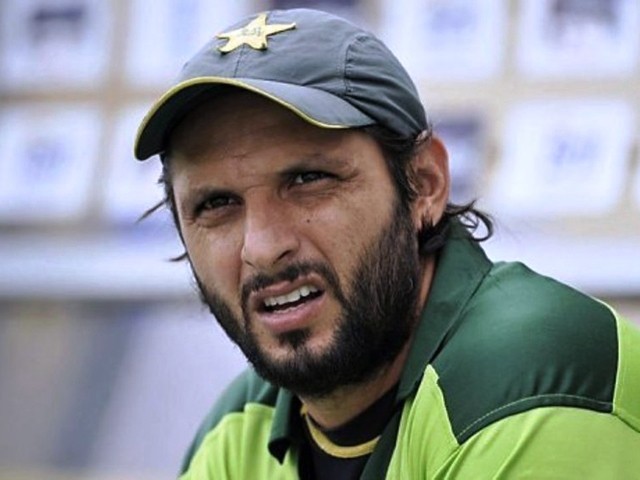Source(google.com)
Mohammad Hafeez Biography
Mohammad Hafeez, Cricketers is famous for Cricket, Pakistani celebrity. Born on 17 October, 1980
Mohammad Hafeez is a Pakistani cricketer. He is a right-handed batsman and a right-arm offbreak bowler. Hafeez generally opens the batting and is also skilful boundary fielder.
International career
Hafeez was one of the several young all-rounders the Pakistani cricket team turned to after their poor Cricket World Cup display in 2003, in which they were eliminated in the first round.
Hafeez scored a half-century on his Test debut against Bangladesh, and in his following Test hit a century. His form with bat and ball would then drop considerably and in late-2003 he was dropped from the Test squad, and soon after the ODI side. With strong domestic performances as well as good showings for the Pakistan A, he remained on the fringes of a recall in 2004. Hafeez returned to the ODI side in 2005 and despite not contributing with the bat, his bowling performances were impressive. In the 2006 Top End Series held in Australia, Hafeez smashed a century for Pakistan A. With Pakistan struggling to find a solid opening pair for Test cricket, Hafeez was recalled for the tour of England. His return to Test cricket was made at The Oval and he scored a fluent 95. Later that year in November, Hafeez retained his place in the side for their home series against the West Indies. After getting starts in the first two Test he would go on to score his 2nd Test century in the 3rd Test in Karachi.
2010 Recall and Good Form
In 2010 he was recalled for the 3rd ICC World T20 Cup. he had poor form in it but showed signs of class batting. He was subsequently recalled again for the T20Is and the ODIs on Pakistan's tour of England. He had some good scores in it and had some solid partnerships with opener Kamran Akmal.
Following this good form he was also in the squad that was selected to play South Africa in the UAE. After some impressive score in the opener slot, he was again rewarded with now a test call up. He had some decent scores in the test matches and bowled some tidy overs of offspin as well.
At the end of 2010 he was also selected for the party that would tour New Zealand. In all of the T20s he made some good scores including a 46.
In the ICC Cricket World Cup 2011, he started the tournament with a few poor scores with the bat, and was consistent with the ball. Especially 10 overs for just 26 runs against Australia and 2 wickets for 16 runs in quarter final. In the quarter-final against West Indies, Hafeez provided a major contribution to the team's victory with 2 wickets and 60*, receiving the player of the match award. Also in the semi final he scored 43 runs and took a wicket for 31 runs in 10 overs although Pakistan lost the match.
In the tour of the West Indies, Hafeez continued his good form with both bat and ball scoring 267 runs in 5 matches with an average of 53.40, and took 6 wickets at an average of 23.50. . He made his second One Day International century in the 4th ODI, where he scored 121 runs before being bowled by the promising leg spinner Devendra Bishoo.
Mohammad Hafeez
Mohammad Hafeez
Mohammad Hafeez
Mohammad Hafeez
Mohammad Hafeez
Mohammad Hafeez
Mohammad Hafeez
Mohammad Hafeez
Mohammad Hafeez
Mohammad Hafeez








com.jpg)

